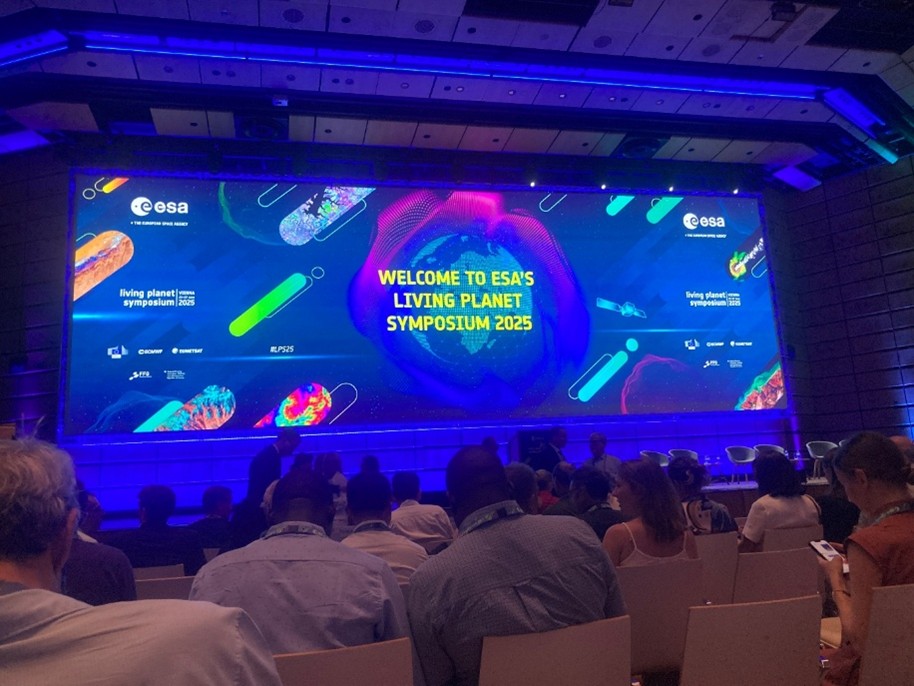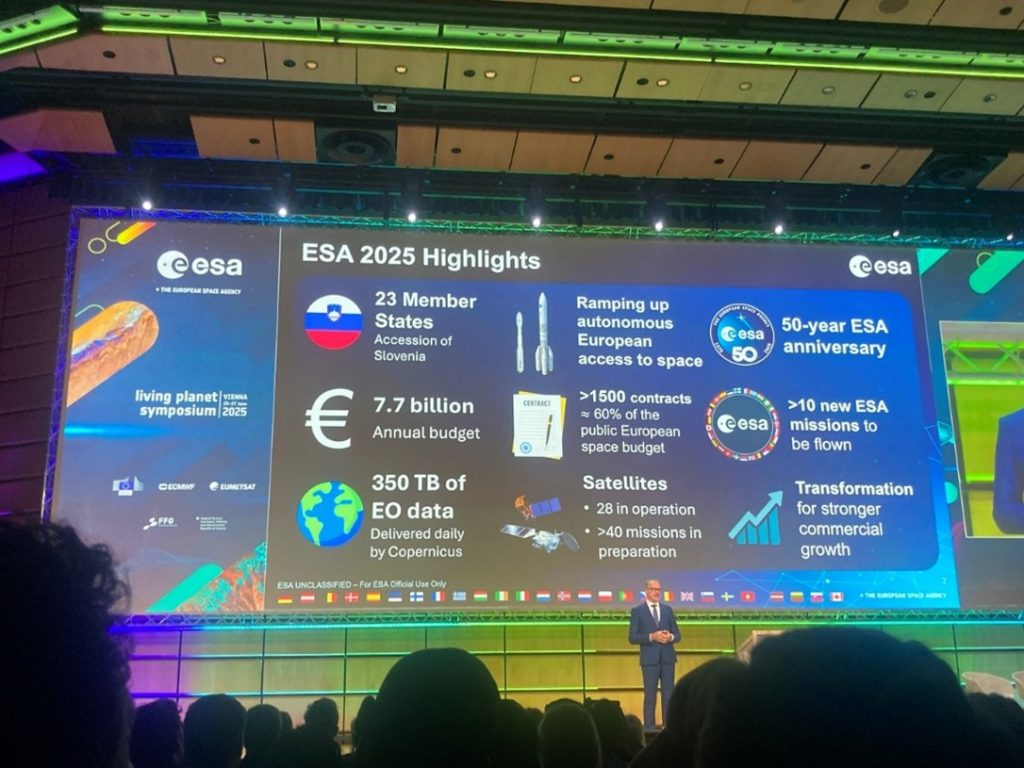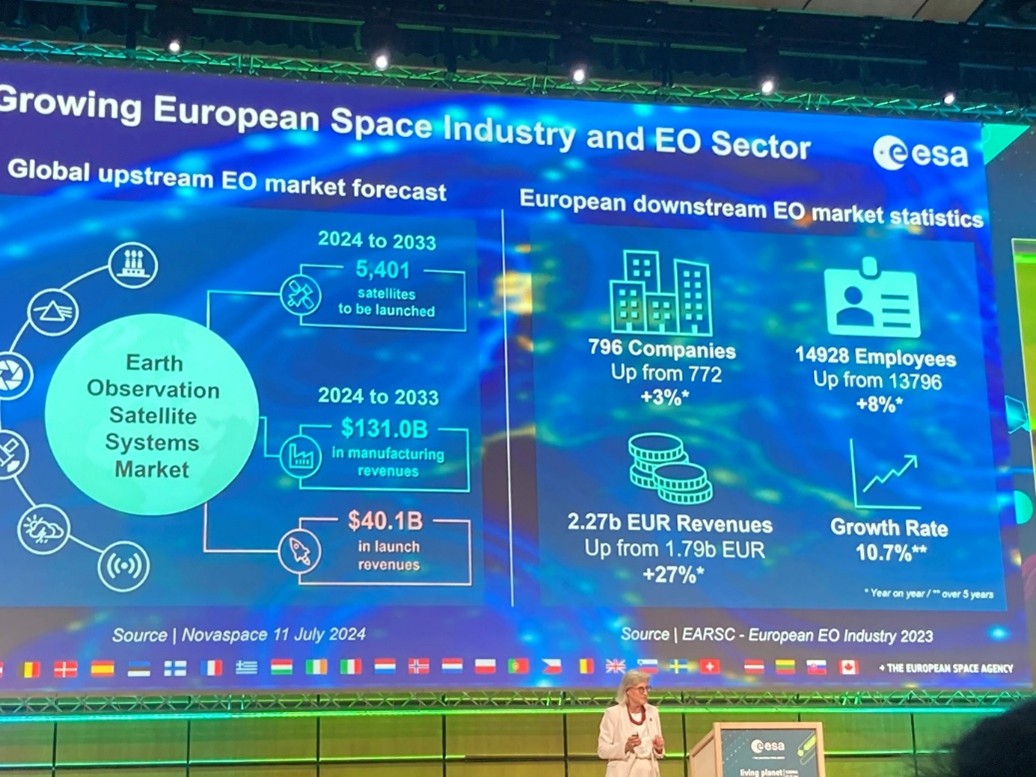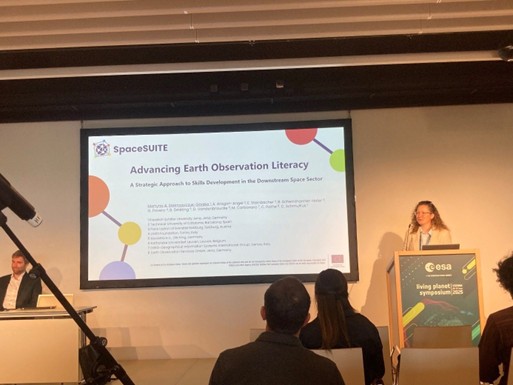
- Category: Events
- 2025-07-04
The 2025 edition of the ESA Living Planet Symposium held in Vienna on 23-27 June marked the largest gathering in the event’s history, attracting over 6500 participants including researchers, public authorities, private companies and institutional stakeholders. Over five days, attendees engaged in a wide array of oral and poster sessions, round tables, exhibitions and demonstrations. The programme featured hundreds of presentations and panel discussions, addressing topics ranging from climate and biodiversity to crisis management and digital infrastructure.

Towards a Common Vision for Europe’s Earth Observation Ecosystem
The opening plenary session included high-level interventions from Commissioner for Defence and Space Andrius Kubilius, ESA director Josef Aschbacher and ESA Earth Observation director Simonetta Cheli. It was highlighted that 30% of ESA budget is allocated to Earth Observation. A market overview was presented comparing the global upstream EO market and the European downstream EO market sectors.

A dedicated roundtable discussion followed, focusing on the European-African EO Partnership. The importance of security was mentioned for both defence and food security.
ESA also announced upcoming calls for proposals, placing emphasis on private sector’s engagement and a co-design/co-ownership approach. Tenders can be found on the ESA-Star portal. The GMES & Africa initiative was mentioned as a key example, with a call for institutionalising the programme at the policy level. Capacity building and knowledge management were identified as essential pillars of this process.
DG INTPA presented the three main objectives of its newly launched €100 million tender under the EU-Africa Global Gateway Investment Package:
- Strengthening cooperation programmes with the African Space Agency (AfSA)
- Developing and operationalising space-based services
- Enhancing the role of the private sector.
Capacity building must not only target scientists, but also policy makers in the continent, with the aim of fostering a robust and sustainable space industry across Africa. This should support co-creation with local stakeholders who best understand user needs, linking regional and national initiatives and complementing existing efforts, such as the African Knowledge Platform and the Digital Learning Platform.
The LSP event also provided updates on the future of Copernicus services and missions, as well as on the Destination Earth programme and the DestinE platform.
 The session dedicated to skills development was the occasion for Martyna Stelmaszczuk-Górska to present the SpaceSUITE project, an EU initiative project that aims at strengthening skills in EO, GNSS and SATCOM.
The session dedicated to skills development was the occasion for Martyna Stelmaszczuk-Górska to present the SpaceSUITE project, an EU initiative project that aims at strengthening skills in EO, GNSS and SATCOM.
Space Y supports the project, aimed at promoting lifelong learning and at filling the skill gap in the downstream sector. SpaceSUITE is the flagship project of the Space4GEO Large-Scale Partnership under the Pact for skills.
Discussions further explored ESA’s Strategy 2040 and the European Commission’s broader objectives related to the digital and green transitions.
The forthcoming ESA Ministerial Council (CM25), scheduled for 26–27 November in Bremen, along with the next EU Multiannual Financial Framework, are expected to shape the future trajectory of programme cooperation.
More info at https://lps25.esa.int